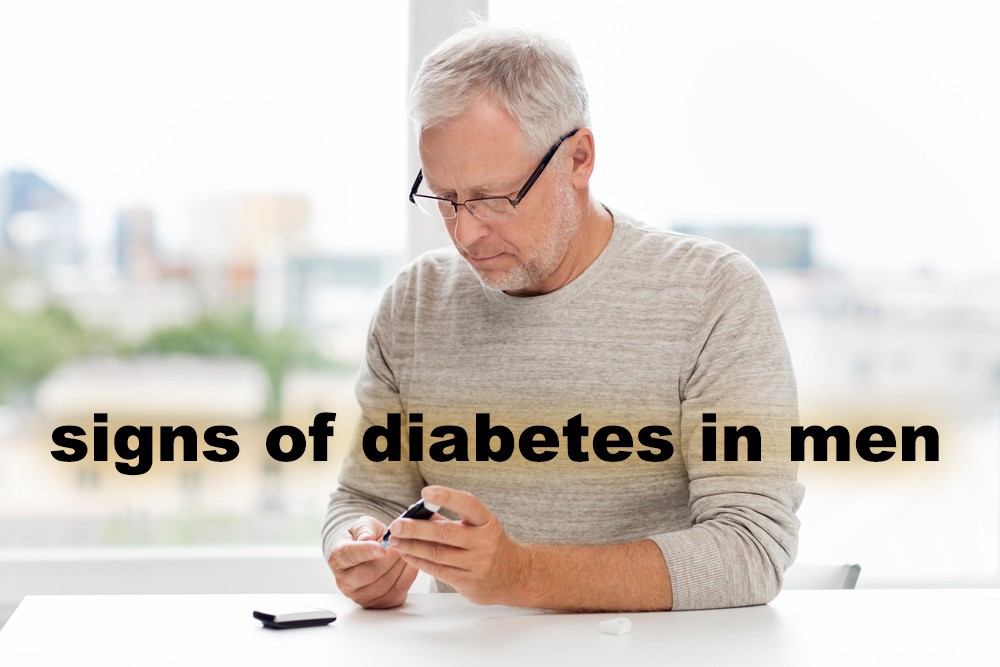I’m going to kick things off by tackling a subject that’s been shrouded in a bit of mystery: male menopause. Yes, you heard that right. It’s also known as andropause, and there’s a swirling pool of debate about whether it’s a medical condition or just a myth.
You’re going to find out about how this term has come up in conversations and has often been met with raised eyebrows or knowing nods. Some consider it a counterpart to female menopause, while others dismiss it entirely. But here’s the deal: it’s not just about whether male menopause is real or not; it’s also about understanding the changes many men experience as they age.

In my opinion, this isn’t a topic to brush under the carpet. It’s vital to peel back the layers and look at the facts, keeping an open mind. That’s going to include diving into symptoms that some men report, exploring the hormonal shifts that occur, and separating fact from fiction.
To give you a complete picture, I’ll touch on how male menopause is currently understood within the medical community. Do hormones take a nosedive as men hit a certain age? Are there other factors at play? Don’t worry too much about grasping all the medical jargon – I’m here to break it down in a way that makes sense.
So, while ‘male menopause’ might sound surprising or even controversial, it’s important to approach it with curiosity. It’s a window into men’s health issues that often go undiscussed. After all, if we’re not asking questions, we’re not getting answers.
And that leads us into the next section, where we’re going to dig into the signs and science behind andropause. From the suspected symptoms to what the research says, we’ll get to the heart of whether male menopause stands on solid medical ground.
The Signs and Science Behind Andropause
You’re going to find out about the potential signs that might suggest a man is going through andropause. These include decreased energy levels, mood swings, a reduction in libido, as well as physical changes like increased body fat and decreased muscle mass. It’s not just a bad day we’re talking about here; it’s a consistent pattern that merits attention.
In my opinion, it’s crucial to ground our discussion in solid science. A decline in testosterone, the hormone responsible for male characteristics, is a normal part of aging. But when does a mere dip become significant enough to be called andropause? Hormonal assays showing lower-than-normal testosterone levels for a man’s age could be a tell.

This isn’t just about hormones, though. It’s also about how these changes manifest in daily life, affecting everything from sleep patterns to bone density. The scientific consensus is still evolving, but there’s an ongoing body of research that seeks to unravel the complexities of andropause. It’s this research that helps medical professionals advise on best practices.
Remember, andropause doesn’t hit everyone like a freight train. Some might sail through with minimal fuss, while others could find it more challenging. The key is understanding that it’s a legitimate phase in men’s health and being aware of the signs so it doesn’t blindside anyone.
Debunking Myths Around Male Menopause
Now, let’s tackle some of the tall tales surrounding male menopause head-on. Many folks think of male menopause as a mirror experience of what women go through, but that’s not entirely accurate. It’s time to set the record straight and separate fact from fiction.
One of the most pervasive myths is that all men experience a sudden drop in testosterone that drastically changes their life. This isn’t the case. Unlike women, most men experience a gradual decline in testosterone, typically about 1% per year after age 30 or 40. It’s not a universal ‘cliff’ that all men are guaranteed to fall off.
Another misconception is that male menopause is directly comparable to female menopause in its effects and timeline. It’s important to realize that menopause in women is marked by a distinct cessation of menstruation – a clear-cut change. In contrast, andropause manifests through subtler shifts over time, with no definitive biological marker like menopause has.

Stress, obesity, and a sedentary lifestyle are often thought to be insignificantly linked to andropause. However, these factors can exacerbate hormonal imbalances and worsen symptoms. So while not direct causes, they’re crucial elements in the overall picture of men’s health during the middle years.
Finally, many believe that andropause leads to severe emotional disturbances in all men. While it’s true that hormonal changes can influence mood, each man’s experience is unique, and not everyone will have significant emotional challenges. Psychological factors and individual circumstances play a significant role in how one copes with these changes.
Understanding what male menopause is not helps clear the way for a better grasp of what it actually can entail. This also primes us for a deeper look into who might be more prone to feeling the effects of andropause, a topic I’ll explore next.
Who is Affected by Male Menopause?
You might be wondering who exactly is at risk of experiencing male menopause. It’s a great question because knowing the demographics can help in early recognition and management of the condition. This condition, medically referred to as andropause, doesn’t just pop up overnight. It’s generally a gradient, almost sneaking up on men who are venturing into their late 40s and beyond.
Andropause typically affects men between the ages of 40 and 65. However, this isn’t a one-size-fits-all scenario. Every man’s body operates on its own unique clock, and some might notice changes earlier or later than others. Key risk factors include a family history of hormonal issues, obesity, type 2 diabetes, and sedentary lifestyle, all of which can affect hormone levels and potentially expedite the onset of symptoms.

There are also external factors to contemplate. Think about chronic stress, an often overlooked yet crucial element that can wreak havoc on one’s hormone balance. Substance abuse, smoking, and excessive alcohol consumption can also play detrimental roles. A man’s occupation and exposure to environmental toxins could further influence hormone levels, tipping the scales toward andropause.
While genetics certainly play a part, it’s not solely about the hand you’ve been dealt. Two men with similar genetic backgrounds might experience andropause quite differently based on their lifestyle choices and environments. Therefore, it’s not only about ‘who’ but also ‘how’ men live their lives that influences who is affected by male menopause.
If you’re someone who’s crossing into that age range, or if you tick some of those risk factor boxes, it’s probably a good idea to start paying closer attention to your health. This leads us to a pivotal question: once you suspect you might be dealing with andropause, how do doctors confirm it? Stay tuned, because I’m about to walk you through the medical jigsaw puzzle that is the diagnosis of male menopause.
Diagnosis: How is Male Menopause Confirmed?
In my opinion, getting to the bottom of health concerns matters, and that’s where a robust diagnosis strategy comes into play. We’re going to look at how healthcare professionals determine if a man is experiencing male menopause, also known as andropause.
If you’re suspecting that what you’re going through might be andropause, don’t worry too much about the initial ambiguity. Clarification often begins with checking for hormonal imbalances. A series of blood tests, which assess levels of testosterone and other important markers, can paint a clearer picture.
However, it’s not all about the numbers. Your first testosterone level check doesn’t need to be a cause for immediate concern if it’s low. Testosterone levels fluctuate, and one snapshot isn’t enough. Doctors usually require multiple tests to confirm a trend.
Diagnosing andropause goes beyond testosterone levels, though. Your doctor will likely conduct a comprehensive assessment that includes your medical history, a physical exam, and discussions about your symptoms. Sometimes, what seems like andropause could be related to lifestyle or other health issues. This is why regular “screening” is a really good idea.

Choose something that resonates with you when it comes to health evaluations—not all treatment strategies or diagnostic approaches will fit every individual. If traditional medicine isn’t giving you the answers, you might consider consulting a specialist in men’s health or an endocrinologist.
Now, as we transition to living with male menopause, it’s good to know that your diagnosis can guide the path to effective management. With a confirmed case of andropause, you’re going to find out about various ways to tackle the symptoms head on. Moving forward, you can always adjust your approach down the road, but having that initial understanding is crucial.
Living with Male Menopause: Lifestyle and Treatment Options
If you’re facing the ups and downs of andropause, don’t worry too much about the road ahead. You’re going to find out about practical ways to manage the symptoms and improve your quality of life. It all starts with adopting a healthier lifestyle – let’s tackle that first.
Nutrition is king. Choosing foods rich in nutrients, especially those beneficial for hormonal balance, can make a noticeable difference.

Exercise isn’t just about staying in shape; it can significantly boost your mood and energy levels. Both combined are powerful in managing weight and stress, which can aggravate andropause symptoms.
But what about medical interventions? Hormone Replacement Therapy (HRT) stands out as a potential treatment. Essentially, it involves supplementing testosterone to counteract its decline. However, it’s not a magic bullet. You will need to consider the possible side effects and work closely with a healthcare professional to determine if it’s right for you.
Then there are alternative therapies – acupuncture, herbal supplements, and meditation, to name a few. While current research on their effectiveness is mixed, some men report improvements in symptoms. Remember, any supplement or alternative therapy should be discussed with a doctor before trying them out.

Now, why is this discussion important? Because your first attempt doesn’t need to be your last. You can always adjust your approach down the road. Choose something that resonates with you and provides relief. That’s what lays the groundwork for the next section where we’ll go deeper into personal accounts and the emotional journey of navigating male menopause.
A Personal Account: Navigating Male Menopause
You’re going to find out about the real-life experiences of a man who’ve faced andropause. It’s often comforting to know you’re not alone in your journey. Men across the board share stories of encountering male menopause and how it has reshaped their understanding of health and masculinity & here is one of them.
Dan’s Story – from age 41 to 50+
“I was very young to be going through the symptoms, but they were ruining my quality of life,” he says. “I felt profoundly tired in the afternoons — I could nod off anywhere. I couldn’t concentrate and my memory was impaired. I also had lots of muscle aches and experienced a decrease in libido.
“In short, I was beginning to feel like an old man and I was only 41. I was also feeling depressed, but put that down to hitting my 40s.
“The male menopause was a term I’d never heard of as a doctor,” says Hegarty. “But I happened to read an article about it in a GP publication and the symptoms described what I was going through.”
Dan made an appointment with Dr Malcolm Carruthers, who had written the article, and attended his Harley Street, London clinic for a thorough physical examination, including checks for prostate problems, diabetes, anaemia, liver and kidney function, thyroid gland, cholesterol and finally testosterone levels.
Dan was prescribed a tablet form of testosterone replacement therapy (TRT).
“Within a few months, I realised I had more energy and could concentrate better. The muscle aches also disappeared. It isn’t a blinding flash, just a gradual improvement. I didn’t turn into a sex god overnight, but my libido picked up enough to have a normal private life.
Twelve years on and TRT has progressed. There are not only long-acting injections and tablets,but a gel, which is Dan’s preferred choice.
“I rub on the Testogel under my armpits once a day after my shower and by the time I’ve brushed my teeth, it’s dry. I have a check-up twice a year. Unlike HRT, you can stay on this for ever and I’ve no intention of stopping”.

This personal account can unearth the more nuanced aspects of living with the condition. From sleep disturbances to mood swings, the physical and emotional challenges are real. But it’s not just a story of struggles—it’s also one of adaptability and growth.
The psychological impact of andropause is far-reaching. Imagine grappling with irritability and depression when just years prior, you felt on top of your game. It’s not something men are commonly prepared for, and that’s precisely why these conversations are vital.
Support systems play a crucial role, something you’ll hear repeatedly from these personal narratives. Whether it’s families, friends, or support groups, having a network to lean on makes a significant difference. It’s about finding those who understand and offer the kind of moral and emotional backing needed.
Counseling, too, is a resource that many men have found invaluable. Talking to a professional can help navigate not only the biological but also the emotional seas that come with andropause. It’s one avenue that can lead to improved coping mechanisms and strategies.

If you’re facing similar changes, remember that your well-being is nothing to compromise on. Choosing to pay attention to your health and being open to seeking help can pave the way for a smoother transition through andropause.
Final Thoughts: Embracing Change and Health Education
I’m here to help you wrap your head around this topic. Male menopause or andropause isn’t just a conversation starter; it’s a medical reality for some that impacts day-to-day life. By breaking down the stigmas and widening the dialogue about men’s hormonal health, we contribute to a more informed and compassionate society.
In my opinion, education plays a critical role. It’s not simply about throwing facts and figures around; it’s also about fostering understanding and empathy. Many men might feel isolated or embarrassed when facing symptoms of andropause, but by promoting open discussions, we can change that.
If you want to be proactive about male menopause, start by choosing to stay informed. Let’s not confine health education to reactive measures – but rather see it as ongoing, preventive care. Encourage open conversations with your healthcare provider and take advantage of resources available.

Don’t worry too much about having all the answers right now. There’s a lot of opportunity in simply starting with awareness and moving forward from there. You can always adjust your approach down the road, whether it be through lifestyle changes, treatment options or simply seeking support when needed.
I really hope that this exploration into male menopause has armed you with the knowledge to start these crucial conversations and that it’s underscored the importance of nurturing our overall well-being at every stage of life. Remember, your first attempt at discussing or tackling male menopause doesn’t need to be your last – it’s about ongoing engagement with your health.
As always, thanks for reading this article & if you have questions or comments, please leave them below & I get back to you.




